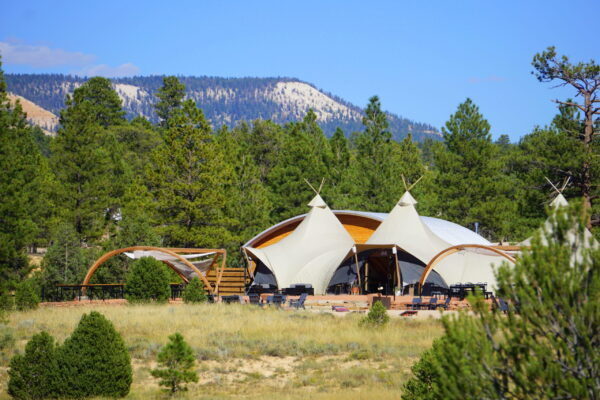“The Expanding Powers of the Administrative State” is part 6 in an 8-part series focused on explaining a document called “A Manifesto for Local Stewardship.” The manifesto, which made its rounds in summer of 2022, was published in The Byway’s most recent September paper.
Using the power of the administrative state to achieve political ends from detached, faraway capitols is dangerous and flies in the face of constitutional principles.
Western public land use has long created a rift between environmentalists and advocates of local stewardship, as well as a power struggle between local governments and the federal bureaucracy. It is disheartening that this contention exists, considering that those who live closest to the land have the greatest vested interest in its conservation.
Farmers and ranchers are the original environmentalists, and if the green lobby had any real interest in actual conservation, they would strive to work in tandem with them. The livelihoods of farmers, ranchers, loggers and miners depend on the vitality of the land, and it would only make sense to them to preserve it for the future.
What should be a unifying message is extremely divisive, and I believe one side more than the other is responsible for the tenor. For many, this has much more to do with exercising control than conserving the environment.
Today’s political left, which includes large swaths of the contemporary green movement, has grown very authoritarian. The typical response to any concern for them is to centralize power and undermine rights and liberties. Somehow, they have found that placing more decision-making power in the hands of the ‘expert class’ to resolve problems through administrative means is preferable to doing it legislatively.
The political left has forgotten the appropriate way to establish law is prescribed by Article I of the U.S. Constitution, which states that “all legislative Powers herein granted shall be vested in a Congress of the United States, which shall consist of a Senate and House of Representatives.” Those who are in favor of expanding administrative power have argued that Congress gave these agencies the authority to make their own rules, but do they really believe that authority is unlimited?
Anyone who has ever worked in the public sector can attest to the fact that the ever-expanding governance of the administrative state is extremely deficient in both competence and efficiency. The idea that western lands can be effectively managed from an office in Washington, D.C., is laughably stupid. If bureaucrats could always be trusted to faithfully execute public law in a politically neutral manner with competence and precision, then perhaps it would be less of an issue.
Unfortunately, public universities have churned out activists who believe it is their responsibility to push their vision and use their positions to accomplish their political ends. Those activists now staff these agencies and the many special interest groups influencing them.
To make matters worse, the bureaucracy is staffed by people who pay no personal price for their poor decisions and are completely detached from the realities faced by those who are affected by their policies. Using the power of the administrative state to achieve political ends is both dangerous and flies in the face of constitutional principles.
I believe that the power wielded by the federal bureaucracy, a group that is unelected and unaccountable, is wildly unconstitutional. Fortunately, the Supreme Court has recently reined in some of the power of the administrative state in West Virginia v. EPA. Still, much needs to be done to rein in the excesses of the federal bureaucracy, return legislative authority to Congress, and restore local control.
– by Daniel Lee Gardner
Feature image caption: In an example of the use of public lands, Under Canvas was awarded a lease of 751 of SITLA (state) acres in 2021 for the development of a luxury glamping resort just south of Widstoe. The lease runs for 30 years.
Read about a 2024 blow to the Administrative State in Supreme Court Overturns Chevron Deference.

